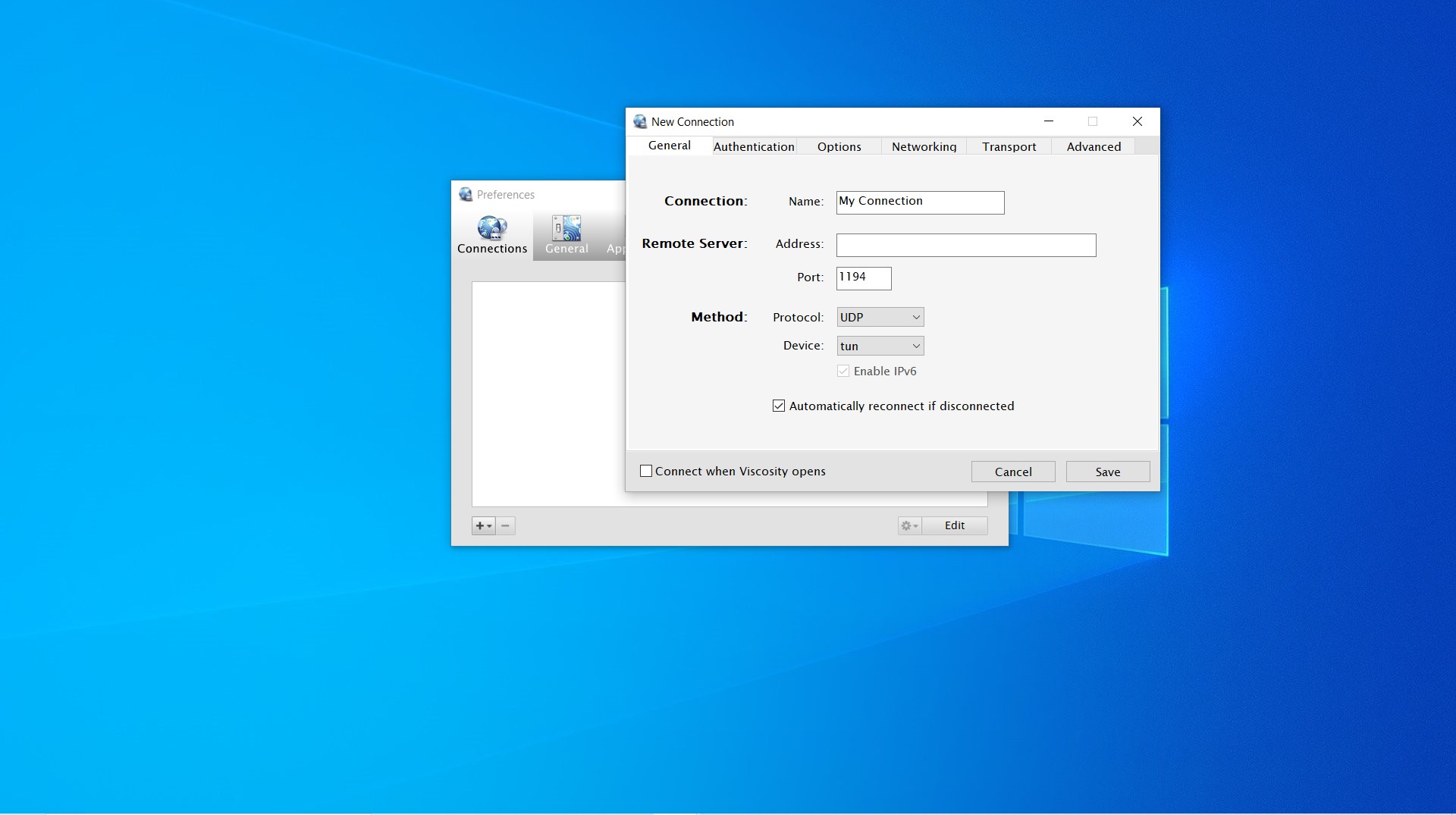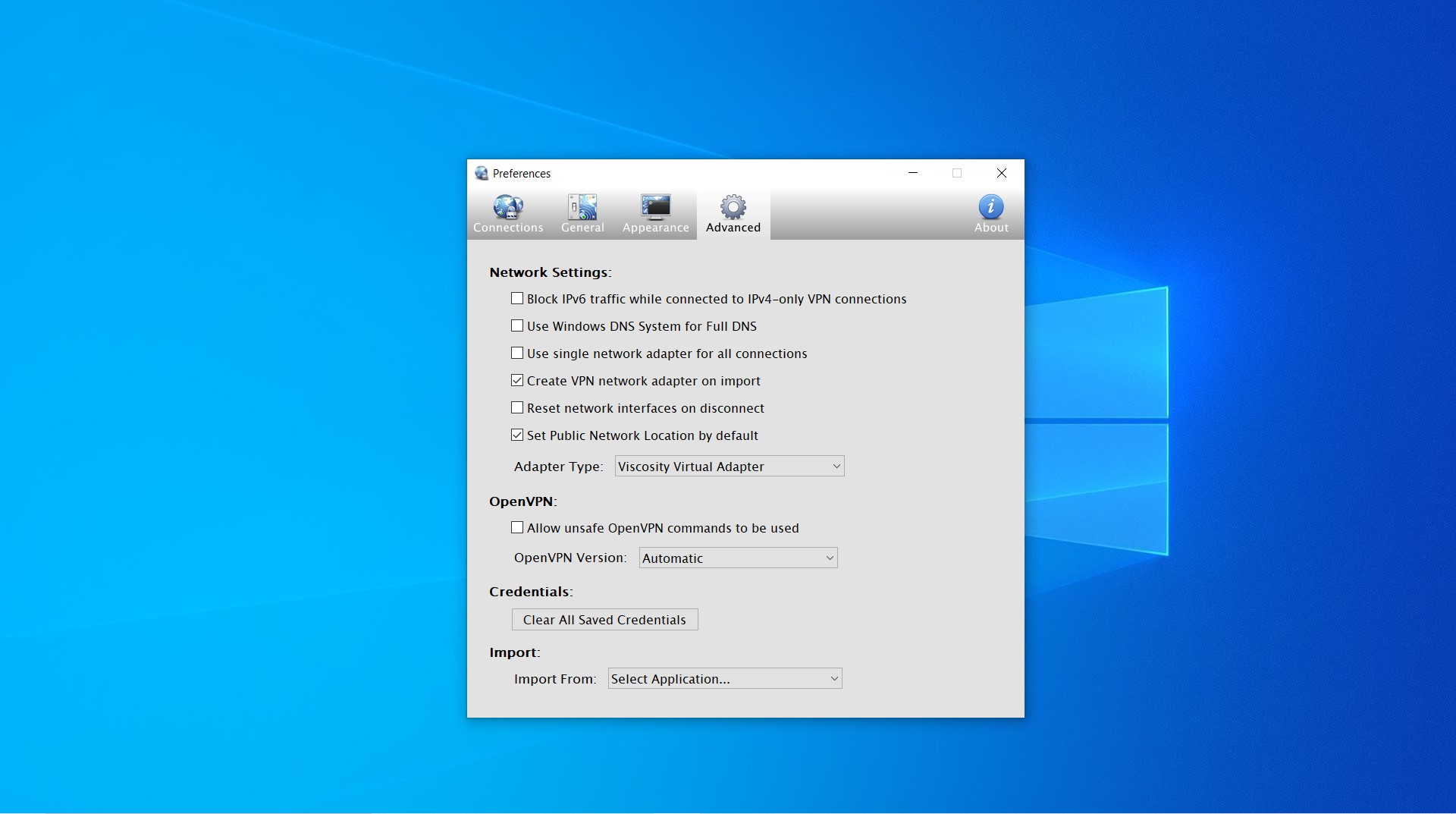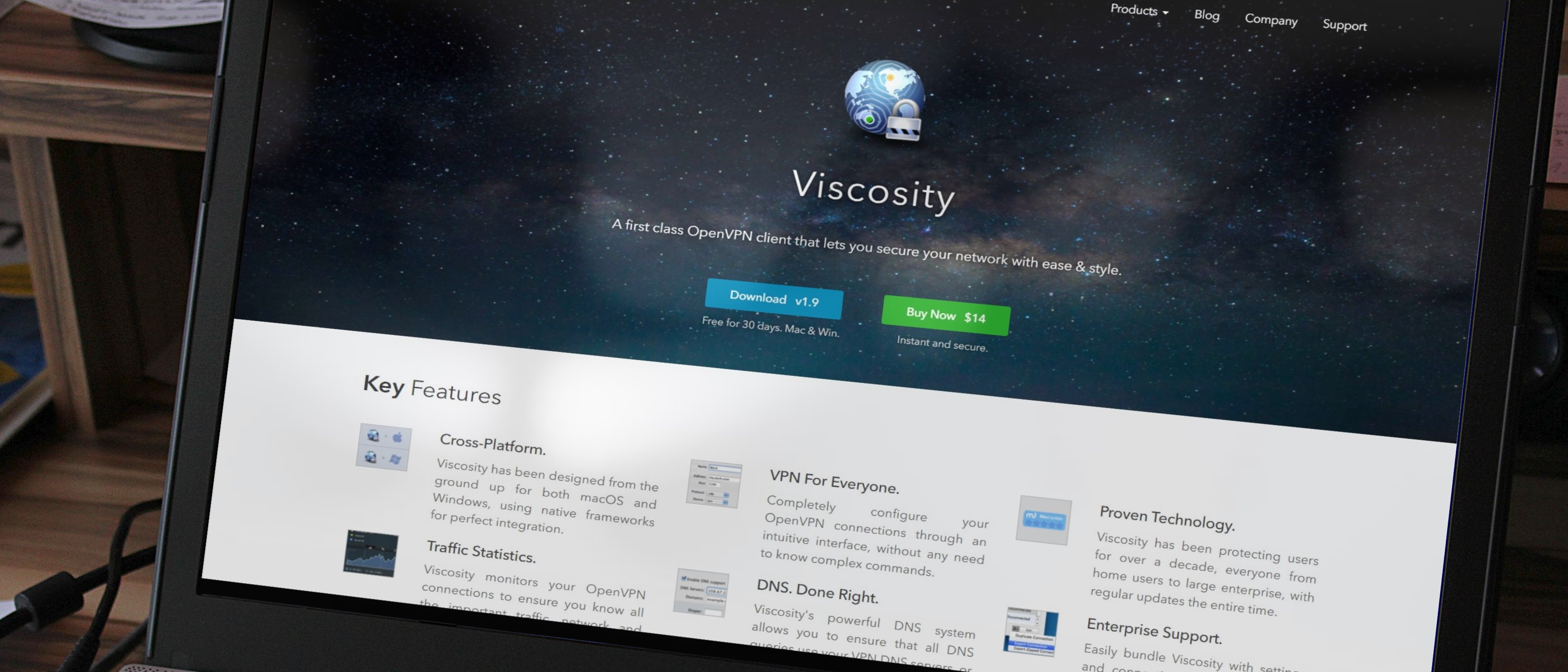TechRadar Verdict
Viscosity is a handy client that allows users to connect to VPN services that do not offer native apps of their own. It can be used for free for 30 days, after which users are required to pay a one-time fee. However, there are no mobile apps nor any sort of a money-back guarantee and the learning curve is a little steep.
Pros
- +
One-time fee
- +
30-day free trial
- +
Lots of options and settings
Cons
- -
No money-back guarantee
- -
Not very beginner-friendly
- -
Lacks mobile clients
Why you can trust TechRadar
Viscosity is an OpenVPN client that allows users to establish VPN connections on Windows and Mac operating systems.
It's unlike a traditional VPN service in that it needs to be complemented by a subscription with a VPN provider. Where Viscosity shines is in allowing users to connect to VPN services that do not offer native applications of their own.
Price
This solution is free for the first 30 days, after which you’ll have to pay a one-time fee of $14 to purchase a license. Accepted payment methods include credit/debit cards, Discover, PayPal and Bitcoin.
License upgrades and volume extensions are available. If you’ve purchased Viscosity product and realized it’s not up to standard, you may be eligible for a refund, but only “in certain instances” and it will be issued at the discretion of SparkLabs management.
The number of simultaneous VPN connections supported by Viscosity depends solely on your chosen VPN provider.

Alternatives
Some of the alternatives to Viscosity include OpenVPN GUI and Tunnelblick, depending on the platform you’re using.
Regardless of your pick, you’ll need a VPN provider like ExpressVPN, NordVPN, Surfshark, or CyberGhost that will provide you with VPN servers to connect with.
Streaming
Viscosity itself can’t unblock the geo-restricted content on today’s popular streaming services like Netflix, Hulu, HBO Go, or BBC iPlayer. However, if your VPN provider of choice is capable of unblocking them, Viscosity will not stand in your way.
About the company
The client was created by SparkLabs, headquartered in New South Wales, Australia, with offices in Bathurst, Australia and California, USA.
SparkLabs is a small, independent company dedicated to creating desktop and mobile software. It was founded in early 2008 and has since worked to develop “attractive, functional, and easy to use software”, with a heavy focus on network security and user privacy.

Privacy and encryption
To keep your sensitive data safe and private, Viscosity makes use of the Windows credential system and Mac keychain, allowing you to automatically re-configure the settings of your browser to ensure the highest privacy levels online.
As long as your VPN provider of choice supports torrenting, then Viscosity will allow it as well. It exclusively facilitates connections via the OpenVPN connection protocol.
According to its Privacy Policy, SparkLabs and its products “do not collect or send out any private data.” For instance, the firm “will not send any interactions (such as keyboard and mouse input), network traffic, usernames, passwords, settings, encryption keys, microphone or camera recordings, VPN connection names, VPN connection configuration data, or VPN traffic.”
However, when you interact with its servers “via a network request, some basic data about the request is logged. This may include data such as your IP address, date and time, the URL or path of the resource or file accessed, browser/software information contained in HTTP/HTTPS request headers (such as your browser/software name and version and operating system information), and request status.”
SparkLabs adds that “server logs are typically only examined when diagnosing a server problem and to monitor for malicious access or use” and may be kept for up to 90 days.
Support
The Viscosity app can be downloaded for Mac and Windows, but there are currently no mobile apps available.
If you find yourself in need of assistance, you can contact customer support via email or try the SparkLabs Twitter page.
However, before you reach out to the team, you may want to check out the website which is well stocked with information. First, there is a self help section with articles featuring the most common challenges, such as getting started with Viscosity, configuring DNS and WINS settings etc. There is also a huge knowledge base with setup guides, common errors, purchasing and registering instructions, and additional information.
As a bonus, there’s a very informative blog with news and updates, as well as a forum, where you can communicate with both the Viscosity team and other users. If you wish to stay in the know with all things SparkLabs, you may also sign up for a newsletter.

Speed and experience
Viscosity is a third-party client that facilitates connections for VPN providers and therefore its speed and performance depend exclusively on the speed of VPN servers you’re connecting to. The app itself may not be ideal for a beginner, but if your VPN of choice is capable enough, it will have detailed instructions and configuration files available to you.
Installing Viscosity itself is pretty straightforward: just double-click the downloaded file and install it. Creating a connection via Viscosity can be done manually or by importing a connection from a bundle or OpenVPN configuration file. The latter option is certainly the more user-friendly one.
To connect or disconnect, you’ll need to click on the name of your connection from the menu that will open after clicking on the Viscosity icon in your taskbar. You’ll be able to monitor your VPN connections from the Details window, divided into three sections - Traffic Graph, Traffic (lists total data passed), and Log (the OpenVPN log output).
Other options are covered by the Preferences, where you’ll be able to add or edit your VPN connections, modify global preferences and more.
Verdict
Acting as a mediator between users and VPN providers, Viscosity is a practical solution for situations where a native client is not available or is prone to malfunction.
Viscosity may not have mobile apps or any kind of a refund policy, but the fact that it is free for a month available for a one-off fee will be enough to entice many people.
Sead is a seasoned freelance journalist based in Sarajevo, Bosnia and Herzegovina. He writes about IT (cloud, IoT, 5G, VPN) and cybersecurity (ransomware, data breaches, laws and regulations). In his career, spanning more than a decade, he’s written for numerous media outlets, including Al Jazeera Balkans. He’s also held several modules on content writing for Represent Communications.
